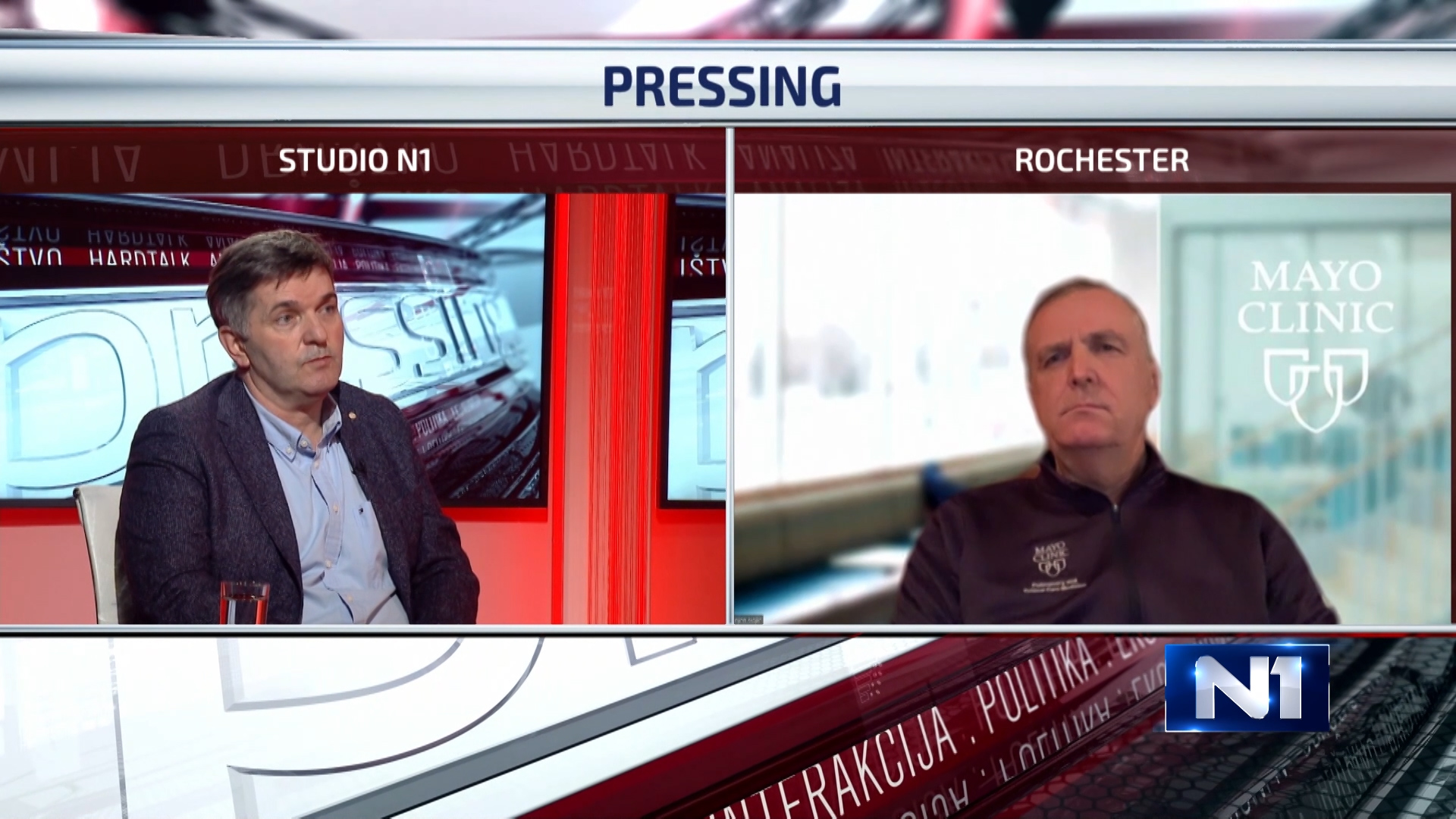
The vaccine is the only answer to the coronavirus pandemic but it will require two-thirds of the planet to be vaccinated to end it, pulmonologist and intensive care specialist at the American Mayo Clinic Ognjen Gajic and Sarajevo General Hospital CEO Ismet Gavrankapetanovic told N1's Amir Zukic Wednesday night.
“The vaccine is the main thing that will help end this pandemic, but two-thirds of the population need to be immunised either through recovering from the disease or by taking the vaccine before we abolish the measures. But this must be done in the entire world because the virus has taught us that borders don't exist,” Ognjen Gajic said.
But the Mayo Clinic expert also advised the viewers how to avoid getting infected in the first place:
“Social distancing, wearing the mask in closed areas, avoiding social gatherings and washing hands – thee things absolutely control the pandemic. If you do this, no one will ever get sick. It's not hard to respect these rules and wearing a mask is not the end of the world,” he said.
When asked whether we will learn anything from the age of coronavirus, Gajic said he believes everyone is now clear that there is no economy without good health.
“We can see this from the example of Bangladesh who first invested in healthcare after which their economy boomed. All those who protected their economy on the account of healthcare regretted this,” Gajic said.
Gavrankapetanovic called on Bosnian taxpayers to demand better healthcare for the taxes they pay to the state.
“We're here to serve the people paying for health insurance and their voice is crucial. They need to take a more active role in this issue,” Gavrankapetanovic said.
Speaking about their experiences both in the US and BiH regarding the situation in their hospitals, Gajic said the pandemic took its toll all over the world.
“Health systems are at the edge of collapse. Doctors and nurses are exhausted. But, perhaps the worst thing about this virus is that visits are banned, so our patients are all alone in their most difficult moments,” Gajic said.
Gavrankapetanovic said the Sarajevo General Hospital has five covid wards with intensive case units and that they are facing two kinds of challenges – the care for their patients and the care for the sick colleagues.
“We've seen a dramatic deterioration of conditions in a very short time. Our Covid teams are trying to be on top of things,” he said but added that “two doctors should treat eight patients, however, our covid wards have one doctor per 15-20 patients, the ward with the most difficult patients we have three to four doctors and five nurses. We're far below world standards, especially when it comes to nurses. This is worrying.”
Commenting on the decline in the number of infected, as well as the high mortality rate in BiH, Gajic said that "mortality always lags after the infection", but that the main reason for this "non-compliance with measures."
"When you get infected, it takes seven or more days for a serious illness to manifest itself. When you are admitted to the hospital it takes another seven days before you go to the intensive care stage. There can be 7, 10, 15 days or even a month before someone dies. The main reason for mortality is the non-compliance with public health measures. This is far more effective than anything else. The other reason is the lack of developed intensive care with trained staff, not only subspecialist doctors but also nurses/technicians, physical therapists and pharmacists,” Gajic noted.
He pointed out that there is a group of 4,000 intensive care workers who come from the countries of the former Yugoslavia, within whom health professionals from BiH exchange experiences and try to make up for what is lacking, but that one particular shortcoming cannot be resolved easily - the lack of nurses.
Kakvo je tvoje mišljenje o ovome?
Učestvuj u diskusiji ili pročitaj komentare





 Srbija
Srbija
 Hrvatska
Hrvatska
 Slovenija
Slovenija







